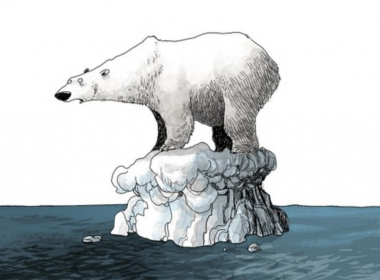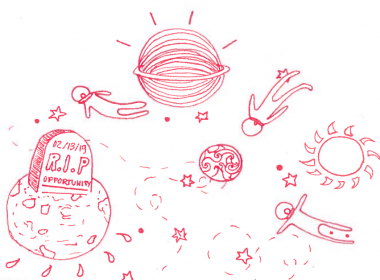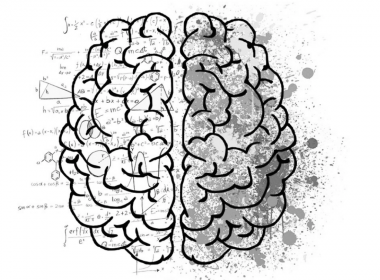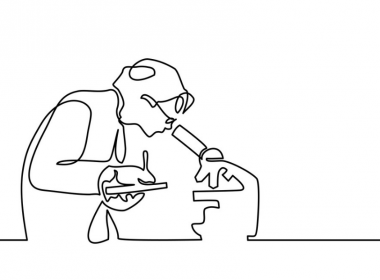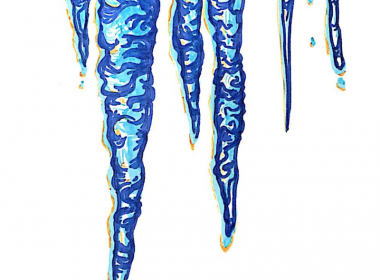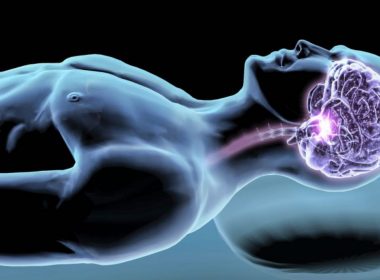In 1988, the arrival of the zebra mussel irreversibly transformed the ecosystem of the Great Lakes. The introduction of the species was, and continues to be, a disaster for North American waterways. By 2009, the species had spread as far as Manitoba and Texas, driving out local species and costing[Read More…]
Science & Technology
The latest in science and technology.
‘I feel you’
Empathy is often talked about in popular culture, particularly within the realms of politics, advertising, and psychology. Articles from ‘Why Empathy May Be Your Most Important Business Skill’ to ‘How to Avoid the Empathy Trap’ are popping up all over the internet. Generally, popular culture labels empathy as a positive,[Read More…]
Climate change consensus and denial at McGill
For many students, climate change is a daily consideration when making choices like bringing reusable bags to the store or using refillable coffee cups. Environmental awareness is as prevalent as its effects are terrifying, exemplified by the 150,000 people who walked at the Montreal March for Climate Justice on March[Read More…]
An obituary for ‘Oppy,’ humanity’s long-lost Space Prince
Opportunity, the Mars robotic rover that stunned humanity by remaining operational for over ten years past it’s original mission date, powered off for the last time on Feb. 13, 2019; a final goodbye at the end of a 225-million kilometer journey. Affectionately nicknamed ‘Oppy,’ the National Aeronautics and Space Administration’s[Read More…]
You aren’t right-brained, you’re just wrong
For much of history, Western theories of what makes people different from each other, such as phrenology, or the pseudoscience linking head shape to mental traits, have been based on the observable, physical differences in our brains. Such theories are unsubstantiated. However, pop culture continues to perpetuate the myth that people[Read More…]
Absurd science names and where they come from
The naming of scientific discoveries can seem, at times, both absurd and random. For example, shmoos, the mating protrusions of yeast, are so named because they look like a 1970s cartoon character. Meanwhile, dominant male elephant seals are called beachmasters and Somniosus microcephalus, the Latin name for the Greenland Shark, literally translates[Read More…]
Montreal’s winters unlikely to remain white
Some McGill students count themselves lucky for bearing the harsh Montreal winters. Despite what may feel like another long and harsh winter coming to an end, a recent CBC data analysis shows that winters in Canada are only getting milder. Over the last two decades, they have consistently been characterized by[Read More…]
VARS gene a new link to a harrowing group of brain diseases
At only two and a half months old, a baby girl named Mathilde Poliquin passed away at the Montreal Children’s Hospital from an unknown neurodevelopmental pediatric disorder. Her head was much smaller than normal, and her brain had not developed properly. Six years later, a group of doctors from the[Read More…]
Using sleep behaviour to predict Parkinson’s Disease
Although the specific biological purpose of sleep is unknown, scientists know that it has an important link to proper brain function. New studies suggest that sleep disorders might also be indicative of the development of neurodegenerative disorders like Parkinson’s Disease. At night, sleep stages cycle between two states—non-Rapid Eye Movement[Read More…]
Stress: A living nightmare
In Old English folklore, a ‘mare’ is a mythological demon that disturbs and haunts people while they sleep, giving them bad dreams. Adding the word ‘night’ before mare gave people further association of this phenomenon as occurring during sleep. Even the Universal Etymological English Dictionary, a text published throughout the[Read More…]


